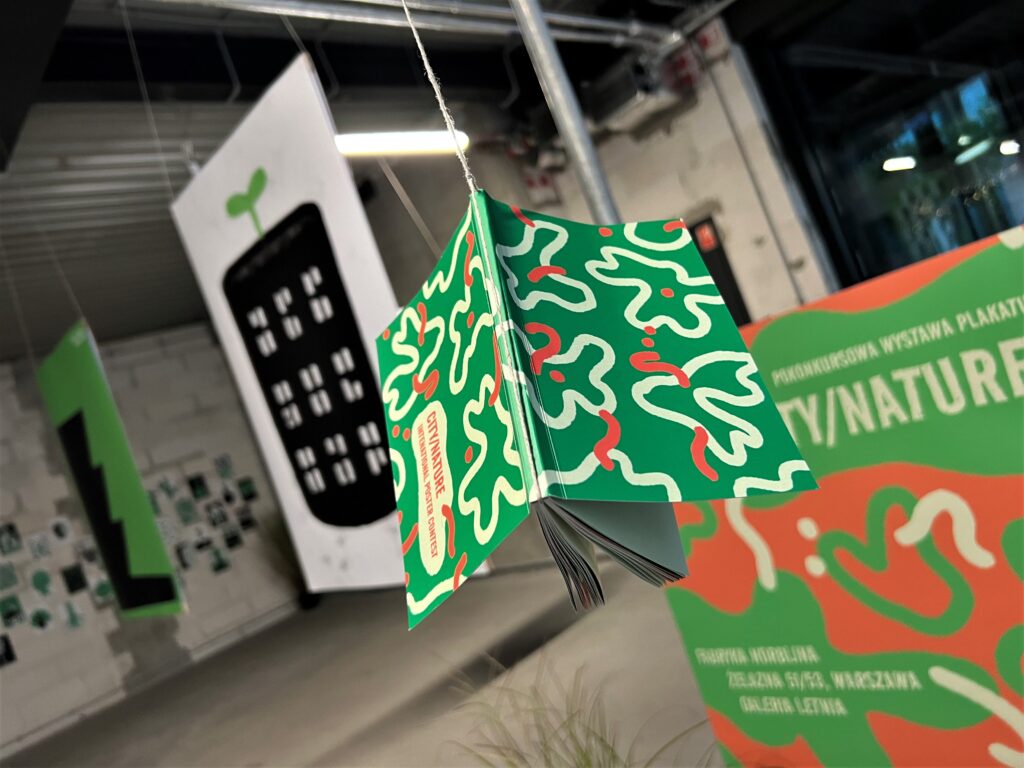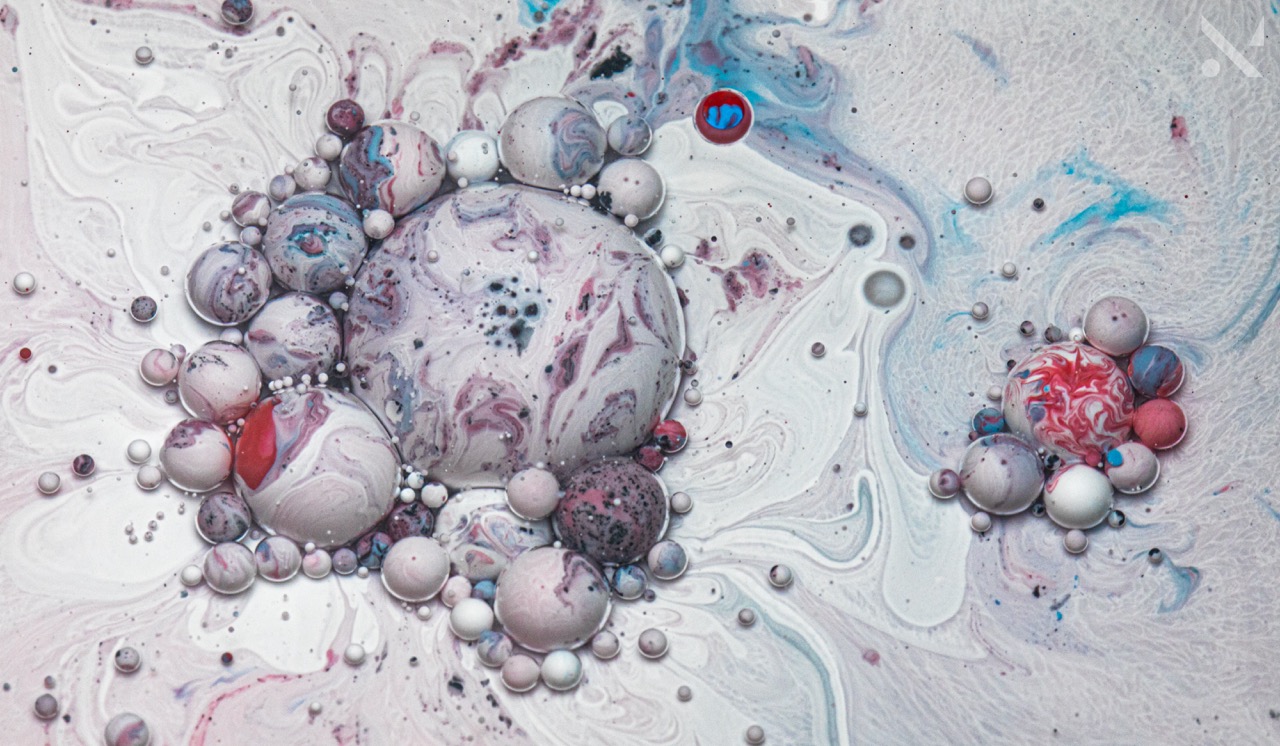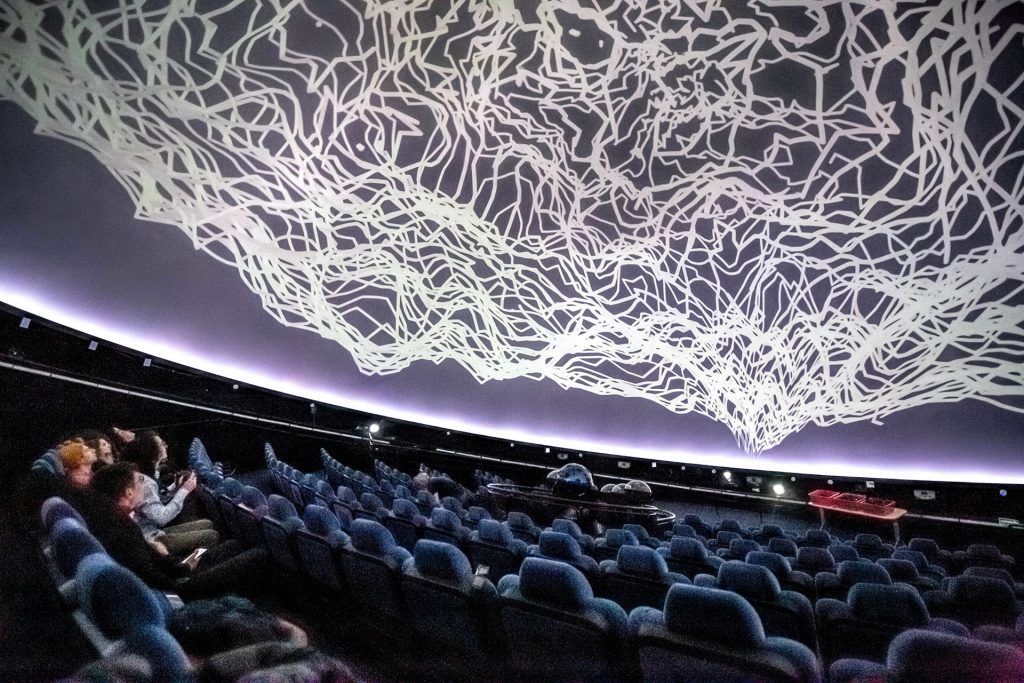Specialized areas
Second-degree graduates are fully prepared to undertake independent, individual, creative activities and tasks, as well as to participate in research and design teams. They are distinguished by their artistic consciousness and ability to seek original solutions in widely understood design activities, also when taking a leading role in the implementation of team tasks. They are also capable of independent professional-artistic work (independent business). Based on the intellectual and creative tools obtained, with high specialized qualifications, they skillfully plan their own careers. They are prepared to undertake further education at doctoral schools in Poland and abroad, as well as lifelong learning and development, depending on the dynamics of the labor market.
Students choosing area Visualization learn the problems, methods and techniques and acquire the skills necessary to design short film forms, graphic design, exhibition design, visual design of shows, websites and flat and spatial design of visual information.
Graduates choosing this area are prepared, in particular, to work as:
- computer game designers;
- art and creative directors in advertising agencies;
- graphic designers, designers;
- exhibitors;
- designers of space and small film forms;
- designers of websites and interfaces for users of computer systems;
- content and intellectual property managers;
- editors of multimedia messages.
Within the scope, the student acquires knowledge that provides a basis for professional development in the direction of creating and managing the content and form of visual communication.
In the field of Animation, the student acquires detailed knowledge of the creation of computer games, music videos, small film forms, but also computer animation and three-dimensional graphics and computer generation of special effects.
Graduates choosing this area are prepared, in particular, to work as:
- computer game designers;
- special effects artists;
- creators of small film forms, music videos and animated films;
- art and creative directors in advertising agencies;
- designers of websites and interfaces for users of computer systems;
- content and intellectual property managers;
- editors of multimedia messages.
Within the scope, the student acquires knowledge that provides a basis for professional development in the direction of creating and managing the content of animated forms.
Laboratories of the Faculty of New Media Art
The elective subjects listed are suggestions and are offered to help you select classes to support your chosen educational path. Please consider them as indicative guidelines that may help you in your decision-making, and not as a list of mandatory choices.
area Visualization
subject focuses on beginning to develop the ability to create 3d content for any real-time application (such as a game). The course includes classes related to the development of teamwork skills (30h) and 3d graphics, including the creation of virtual scenery (30h).
Presented by Dr. Krzysztof Kalinowski, M.Sc. Adrianna Wróbel
Suggested elective subjects:
- - real-time graphic design (mandatory for MAP3D Studio)
- - Digital animation techniques
- - Computer game development
- - Specialized drawing
- - Color in multimedia space
- - 2M sound
- - Workshop 1 MA
- - Film studio
- - Immersion systems
We teach 2D and 3D programming in the TouchDesigner environment, mapping design and generating interactive graphics. The studio creates interactive installations, VJ shows, real-time visualizations used at concerts, theaters and art events.
Moderated by Anna Klimczak, Ph. dr hab. ., Zuzanna Goclawska, M.A., Natalia Slusarska, M.A.
Suggested elective subjects:
- - New Media Technologies (compulsory for PMUL Workshop).
- - graphic design dynamic
- - Color in multimedia space
- - Specialized drawing
- - 2M sound
- - Video mapping
- - Workshop 1 MA
- - Presentation techniques
- - Curatorial exhibition projects
Graphic design studio (PGPR) VISUALIZATION
The training area covers graphic design and related fields in a broad sense. Projects carried out in the studio include development of visual identity (including generative elements), infographics, dynamic data visualization, publication design (paper and digital), typography, UX/ UI, web and game interface design for mobile platforms. We also carry out artistic and experimental projects for which graphic design is only a starting point or supporting element. The program involves the creation of intermedia and interdisciplinary projects, using 2D and 3D, static and dynamic, created using the latest technologies (for example, AR), with engineering support.
Moderator Agnieszka Ziemiszewska, Ph dr hab.
Suggested elective subjects:
- - Technological classes serigraphy
- - graphic design dynamic
- - Specialized drawing
- - Color in multimedia space
- - Digital publication
- - Branding
- - Workshop 1 MA
- - Digital Content (for Graphic Designers)
- - Presentation techniques
- - Poster design
- - Curatorial exhibition projects
As part of the IPPA studio, students complete an intermedia thesis. Students can prepare various forms of artistic expression depending on the scope of the specialty of the selected supervisor. The supervisor should be chosen from among:
dr hab. Andrzej Kalina
As part of the diploma, students will realize a series of 8-10 prints (depending on the size) on any chosen topic in the technique of their choice: linocut, etching, serigraphy, dry needle, algraphy, digital printing, monotype, own techniques. Completed graphics will be the inspiration for the realization of the multimedia part of the diploma by making animations for graphics, website, virtual exhibition or other proposed digital solutions.
Prof. dr hab. Tomasz Myjak
The studio combines the experience of painting, photography and camera techniques (the use of footage /moving image/animation in a non-narrative way). Many diploma works in the final become a spatial form, an installation, an experience on the verge of virtual or augmented reality. Very often the diploma work results in pure art... unencumbered by a layer of utility, but this is not the rule.
Suggested elective subjects:
- - Technological classes serigraphy
- - Digital animation techniques
- - Specialized drawing
- - Color in multimedia space
- - Digital publication
- - New Media Technologies.
- - Workshop 1 MA
- - Digital Content (for Graphic Designers)
- - Sculpture
- - 2M sound
- - Video mapping
- - Presentation techniques
- - Cultural anthropology
- - Wall imaging techniques (mural)
Suggested elective subjects:
- - graphic design dynamic
- - Digital animation techniques
- - Specialized drawing
- - Color in multimedia space
- - Digital publication
- - Branding
- - Sculpture 1M
- - Video mapping
- - Workshop 1 MA
- - Digital Content (for Graphic Designers)
- - Presentation techniques
- - Immersion systems
- - Cultural Anthropology
- - Wall imaging techniques (mural)
Prof. dr hab. . Jasmina Wójcik-Wróblewska
The studio can produce posters, prints, as well as films, performances, sound installations and all other forms of artistic expression. The most important aspect of their activities is the social rooting and overtone of the work in a social context, or its appearance in public space. The works may have the hallmarks of social interventions.
It can be a work with a selected social group, as well as a personal statement on a pressing issue (for example: a useful film, a series of intervention posters, a film documenting an artistic action, a performance in a public place and others). We are oriented to creative discussion, dialogue, group work (possible, but not necessary). Other artists, practitioners and theoreticians are invited to the studio for guest lectures (from fields such as philosophy, sociology, cultural studies, urban activism, gardening, nonviolent understanding, intercultural and anti-discriminatory practices).
Keywords: - feminism,- social design,- caregiving,- socially engaged film,- long-term art or social-art projects,- motherhood,- ecology,- uprecycling, coworking with communities.
Prof. dr hab. Pawel Nowak
In the studio, great emphasis is placed on student creativity. The idea for the realization of the diploma is prepared together on the basis of dialogue and individual preferences. An important element is the artistic aspect. Construction of an individual context. Often in diplomas, an autobiographical context is addressed in order to achieve an individual, personal narrative. The final image of the diploma can take on any artistic character.
Suggested elective subjects:
- - Digital animation techniques
- - graphic design dynamic
- - Digital publication
- - Branding
- - Specialized drawing
- - Color in multimedia space
- - Video mapping
- - Workshop 1 MA
- - Digital Content (for Graphic Designers)
- - 2M sound
- - Poster design
- - Immersion systems
- - Presentation techniques
- - Cultural Anthropology
- - Curatorial exhibition projects
- - Wall imaging techniques (mural)
Suggested elective subjects:
- - graphic design dynamic
- - Digital animation techniques
- - Specialized drawing
- - Computer game development
- - Digital publication
- - Branding
- - Sculpture 1M
- - Workshop 1 MA
- - Digital Content (for Graphic Designers)
- - Film studio
- - Presentation techniques
- - Immersion systems
- - Cultural Anthropology
area Animation
The graduate-level film animation studio is designed to prepare students for the complex process of creating an animated film. In the course, students acquire advanced knowledge and practical skills in animation techniques - both traditional and digital.
The main objectives of the course are to develop creativity and individual creative skills, as well as to improve the ability to work in a production team. During the course of the diploma project, students learn to independently develop the artistic concept of the film, create a storyboard, design characters, backgrounds and animation, as well as manage the production process.
The final goal is to prepare a professional film project, which will be the result of acquired knowledge, skills and personal creative input.
Presented by Jacek Rokosz, Ph. dr hab. ., Magdalena Pilecka, M.A.
Suggested elective subjects:
- - Digital animation techniques
- - real-time graphic design
- - New Media Technologies.
- - Propedeutics of the art of filmmaking
- - Specialized drawing
- - 2M sound
- - Film studio
- - Presentation techniques
- - Cultural anthropology
The goal of the studio is to familiarize students with advanced techniques for working in a 3d environment. This is accomplished through exercises of increasing complexity, The subject goal is to begin development towards developing the ability to create 3d content for any real-time application (such as a game). The course includes activities related to the development of teamwork skills (30h) and 3d graphics, including the creation of virtual scenery (30h).
Presented by Dr. Krzysztof Kalinowski, M.Sc. Adrianna Wróbel
Suggested elective subjects:
- - real-time graphic design (mandatory for MAP3D Studio)
- - Digital animation techniques
- - Computer game development
- - Specialized drawing
- - Color in multimedia space
- - 2M sound
- - Workshop 1 MA
- - Film studio
- - Immersion systems

Ready to start your career as a graphic designer?
Register on our enrolment portal!


